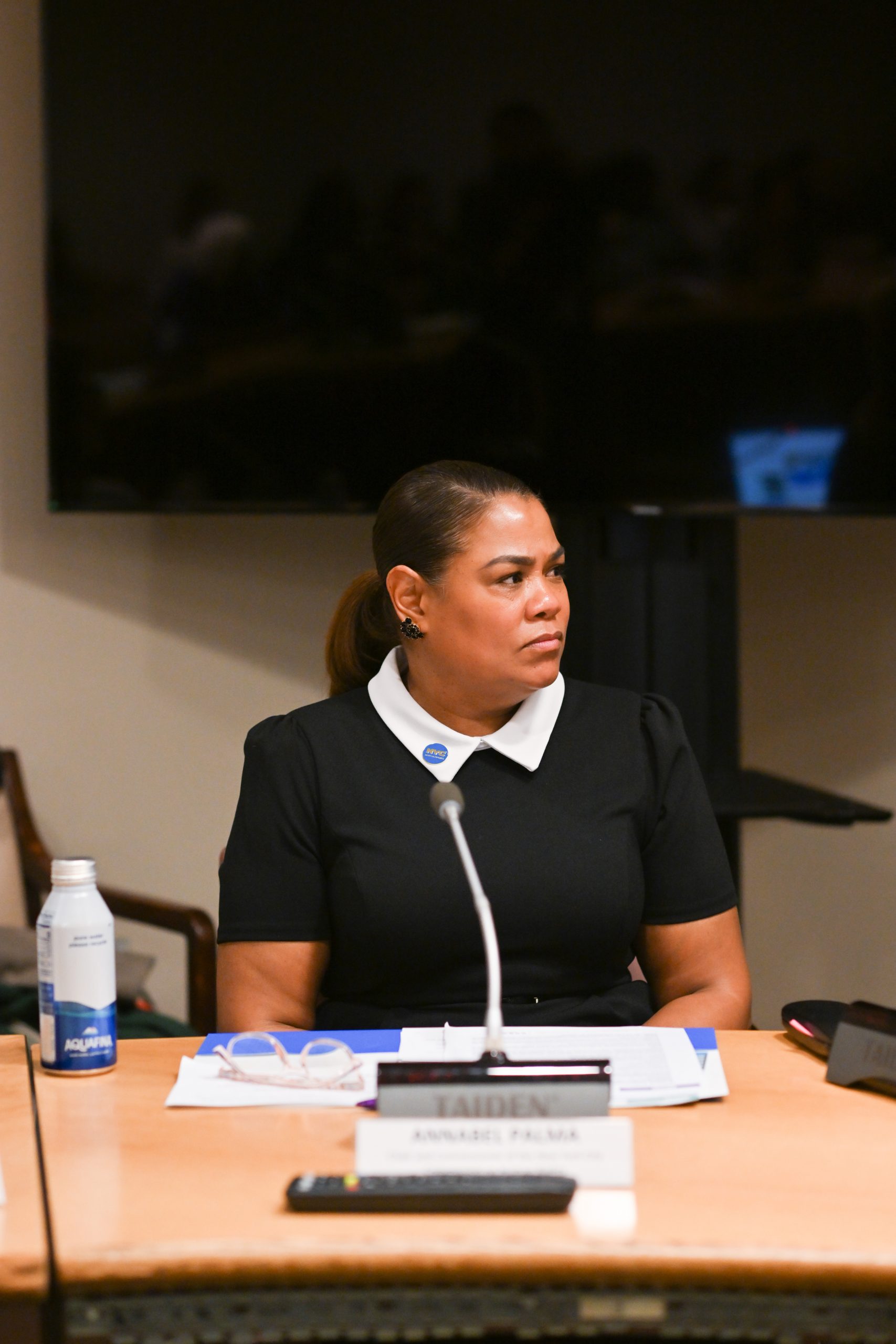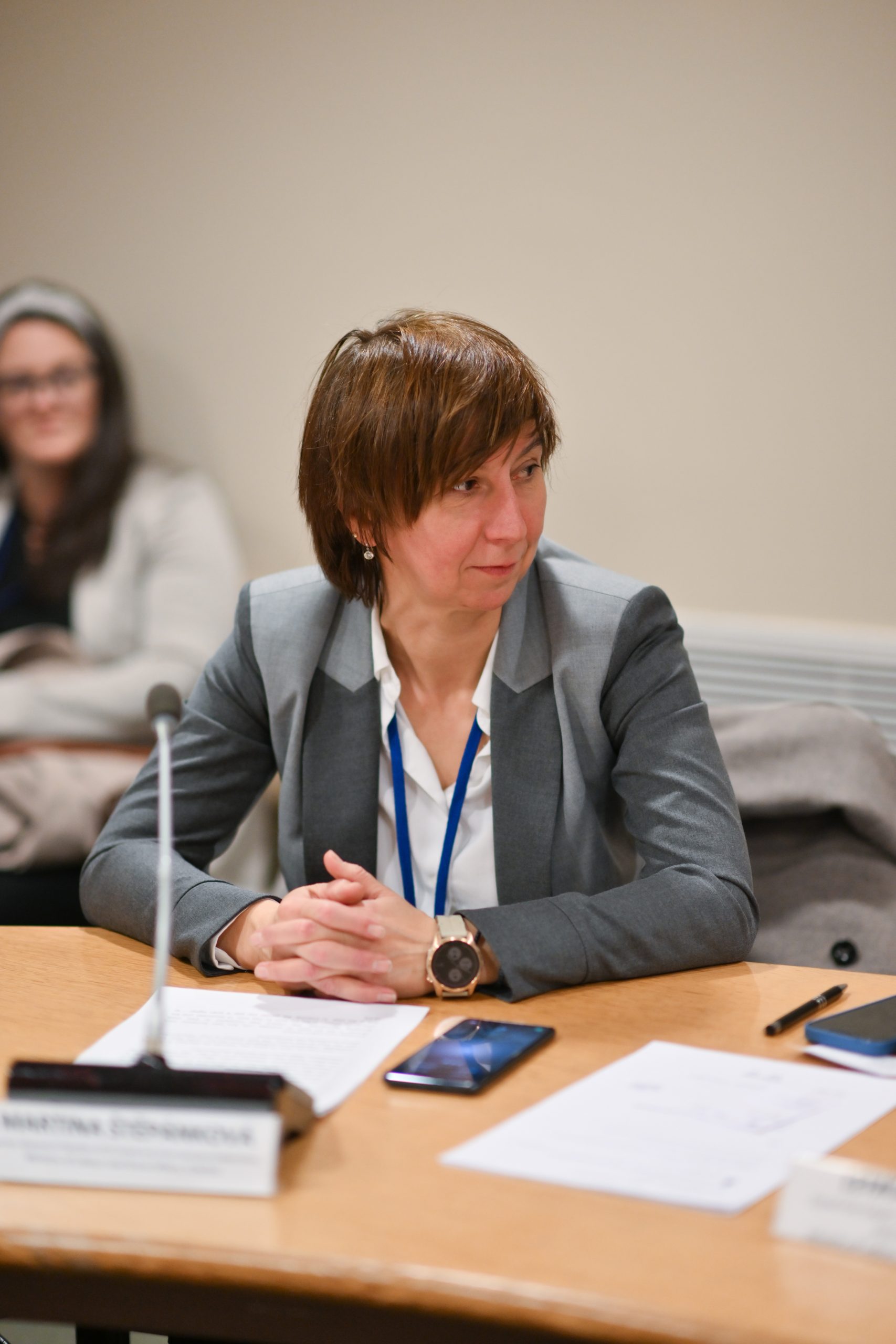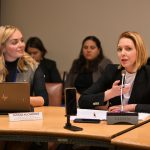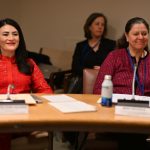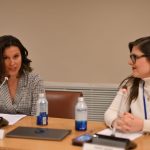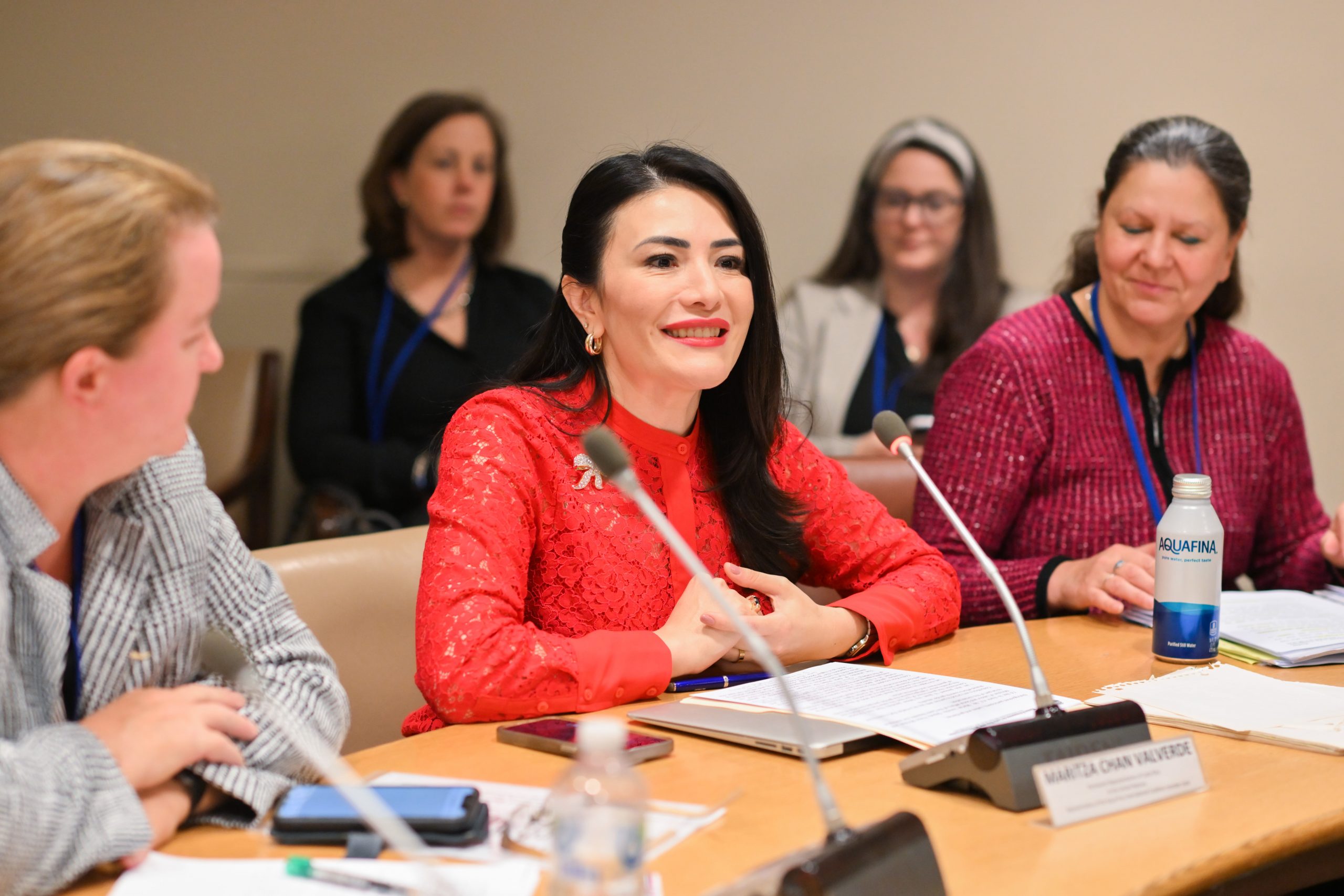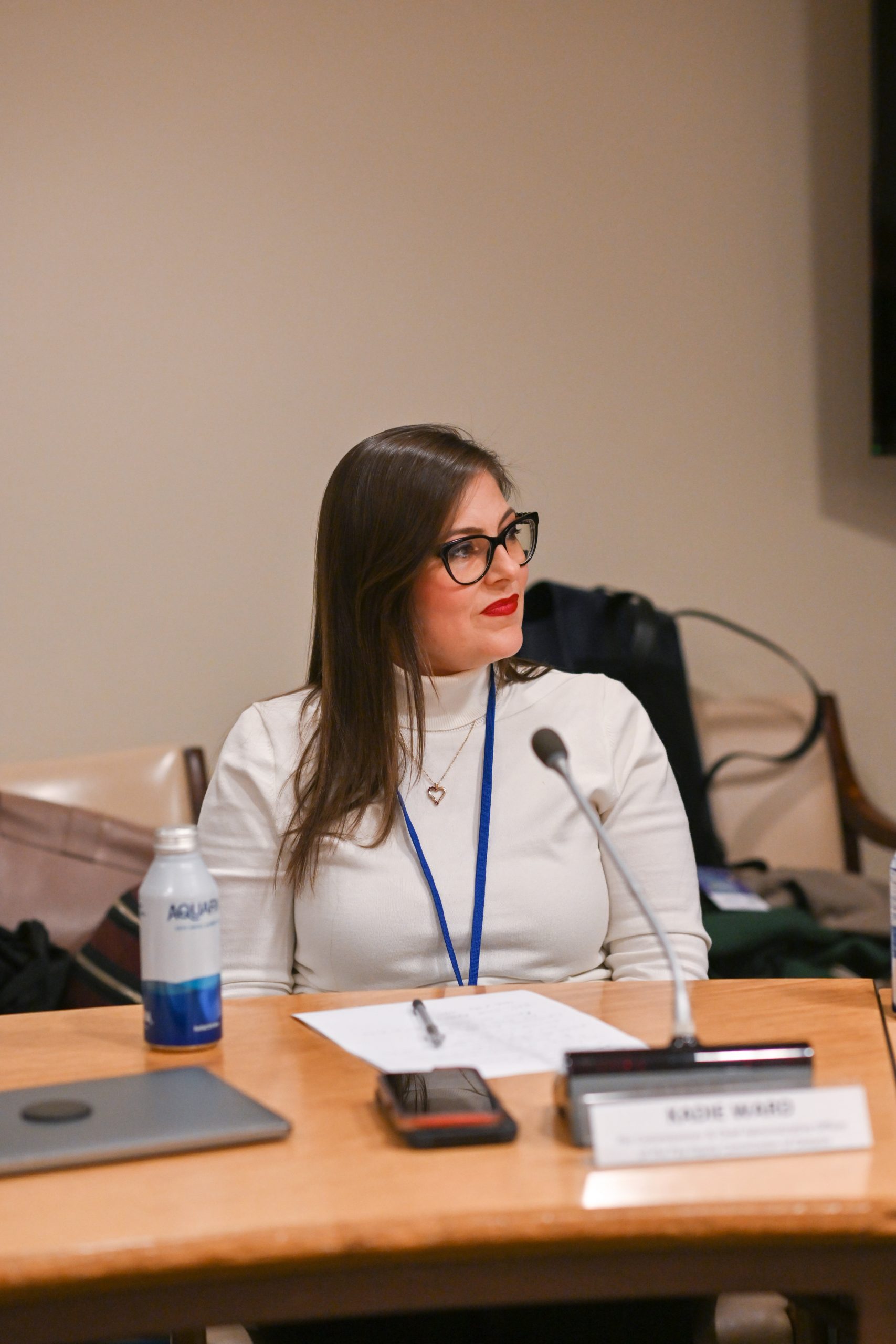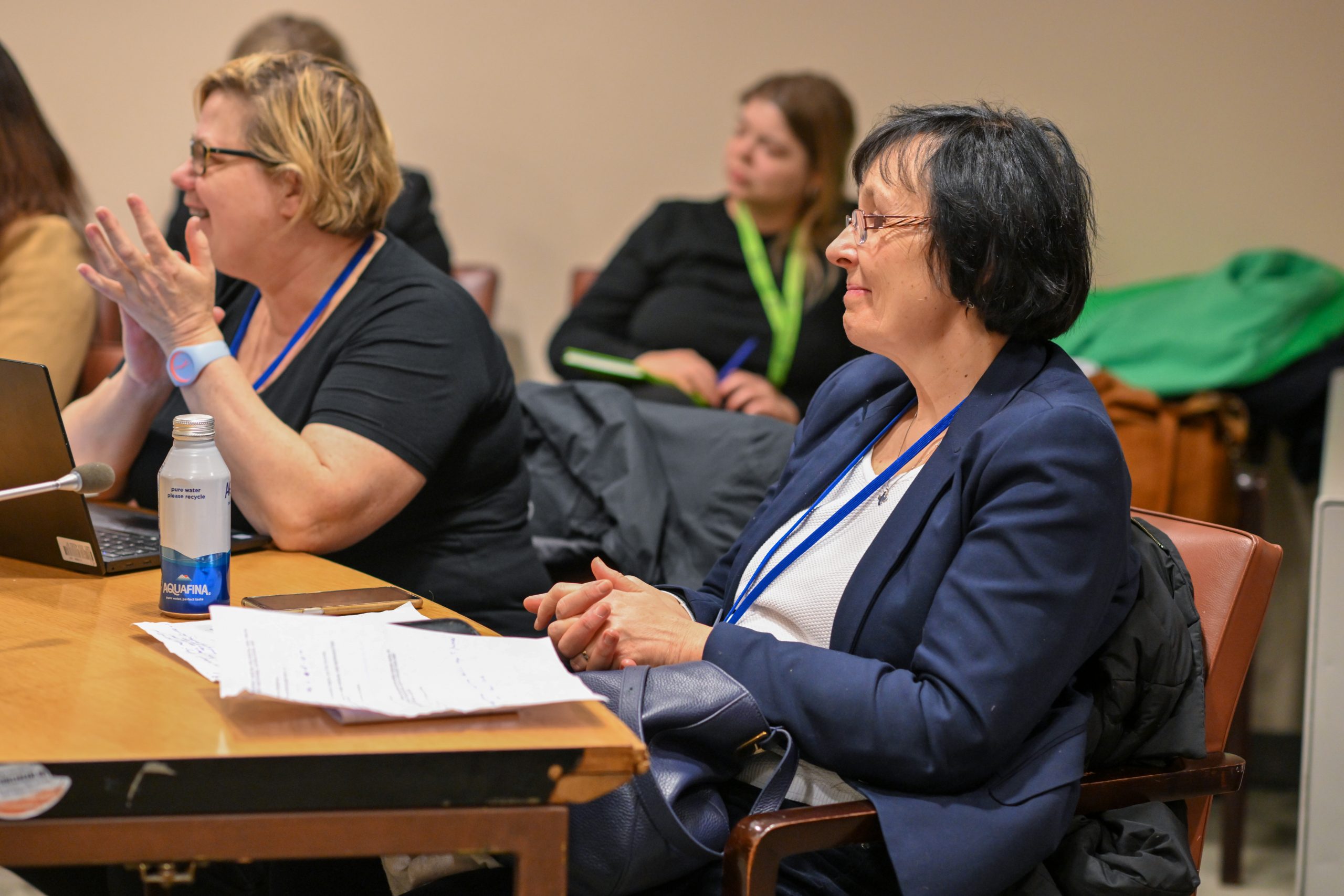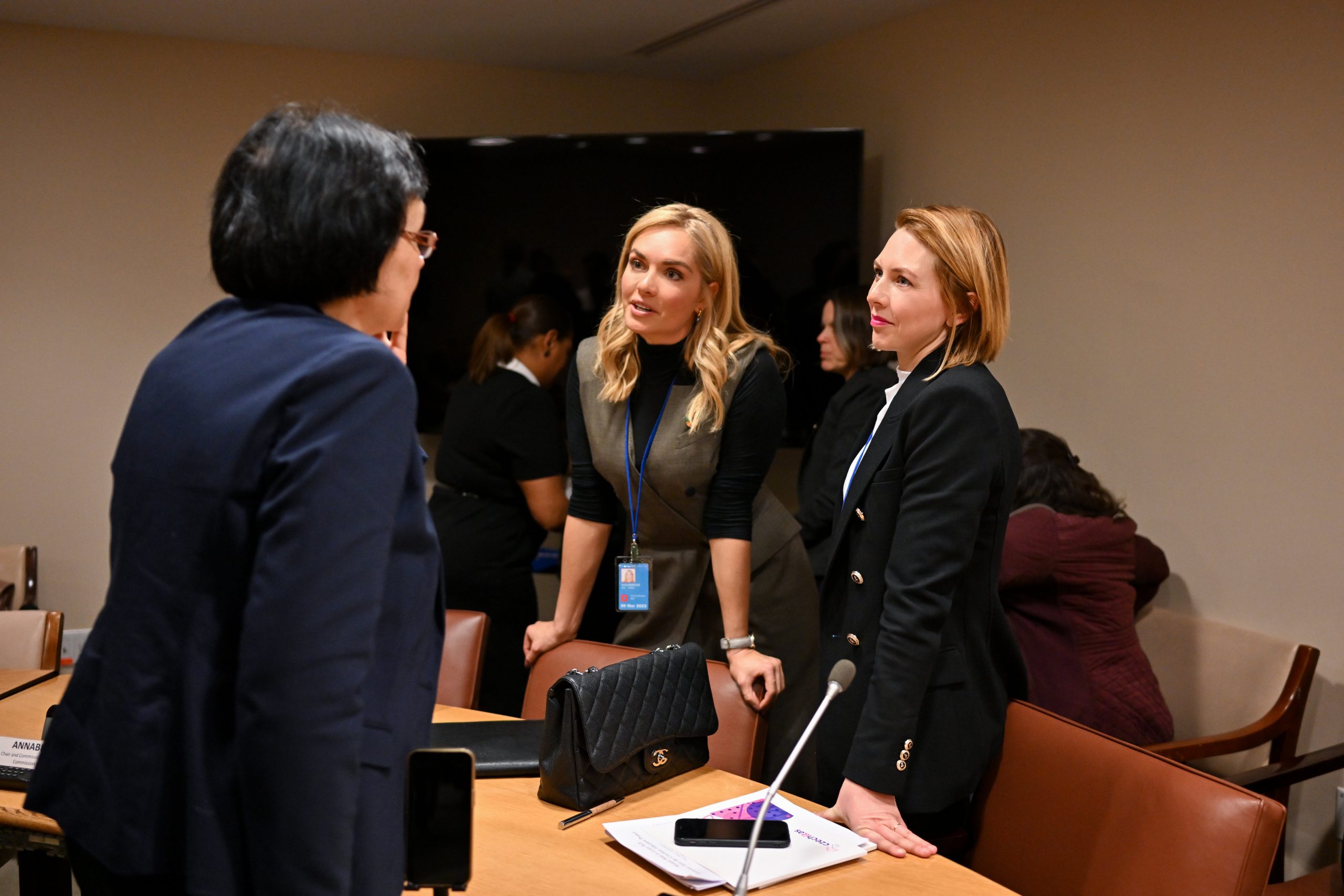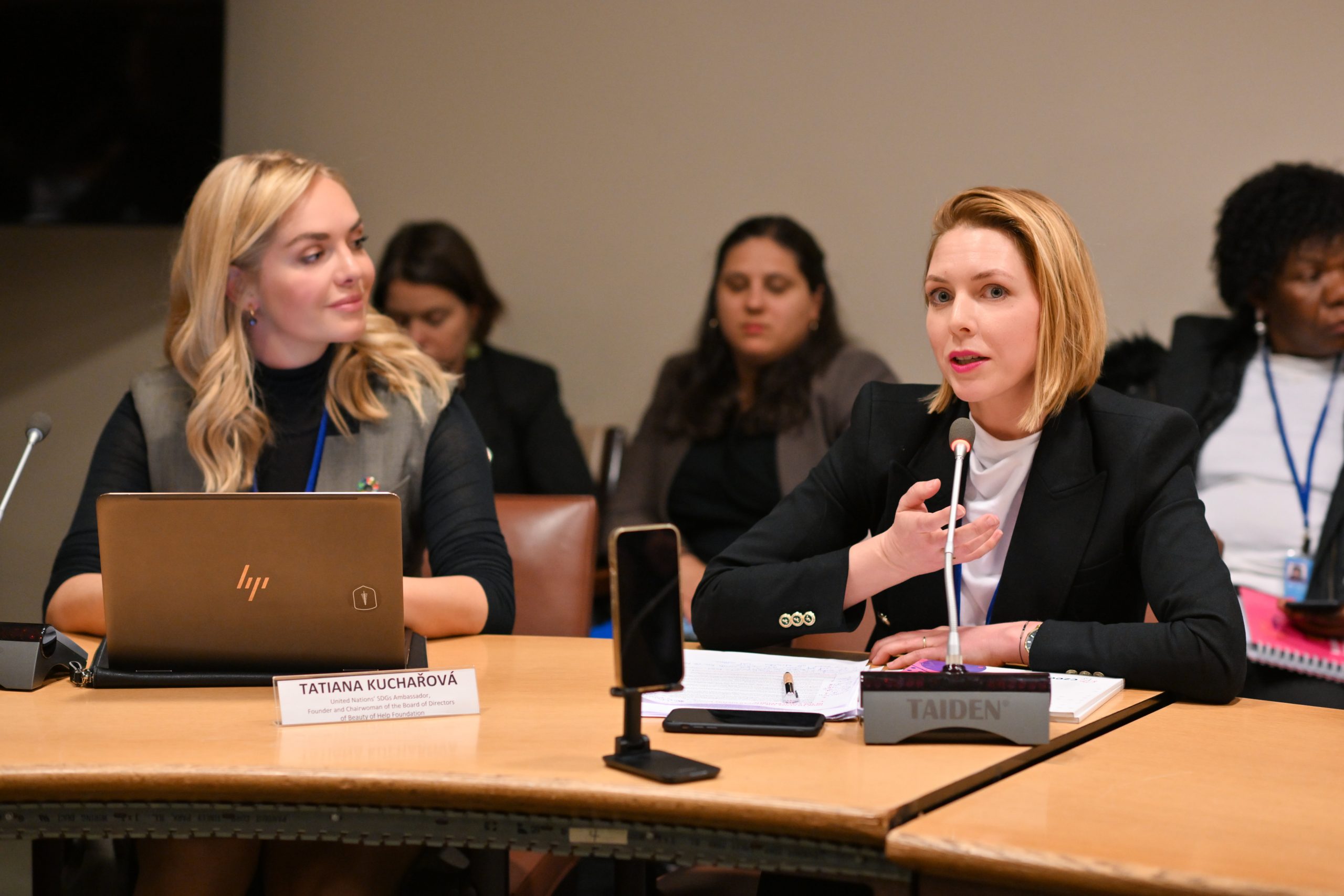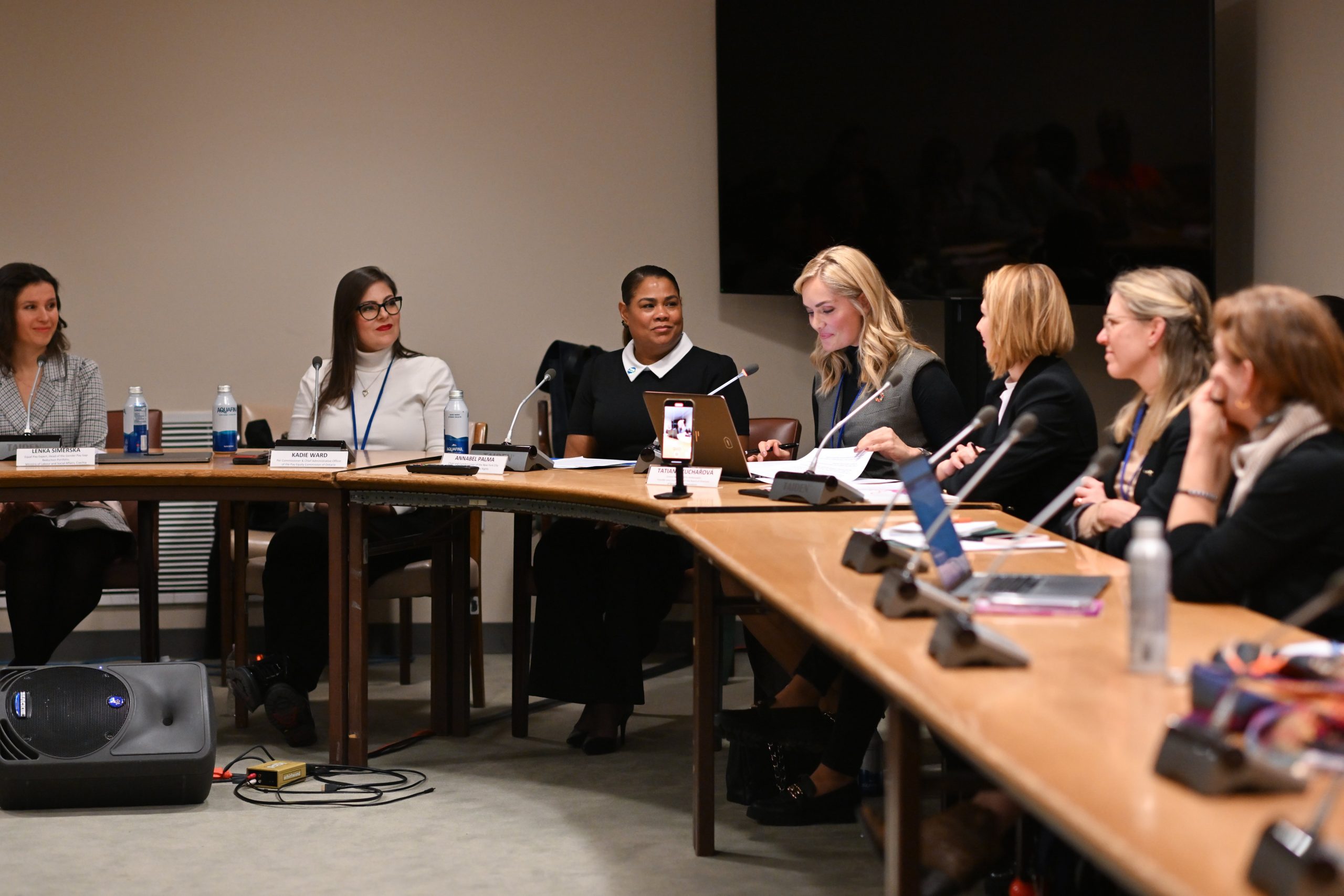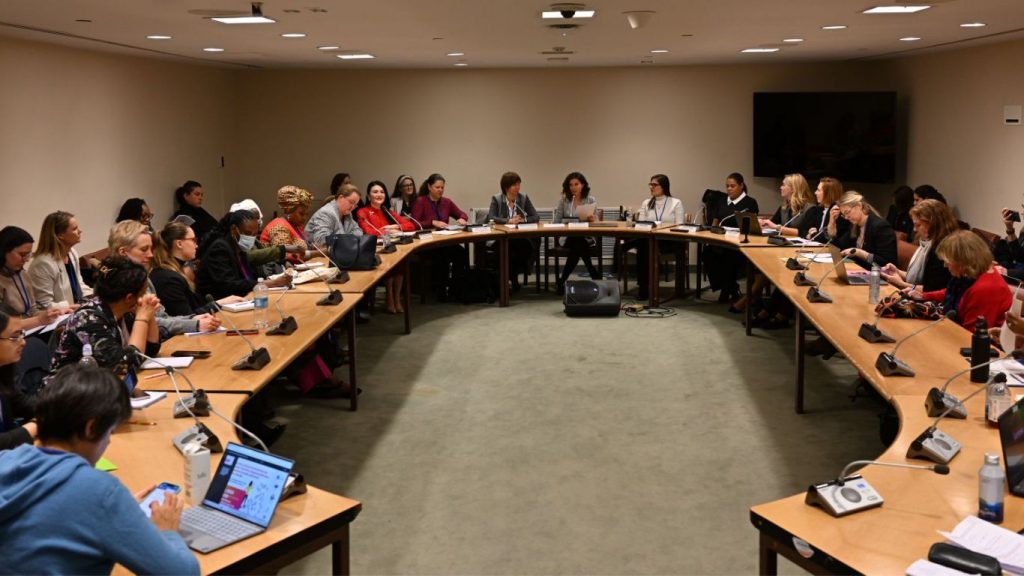New York, March 2023 — The Czech Republic, together with the European Commission and Costa Rica as co-sponsors, organized a side-event at the 67th UN CSW to discuss pay transparency in the context of the digital age.
Participants filled the room to its maximum to attend the event entitled “New Opportunities to Reduce the Gender Pay Gap in the Digital Age: the EU Pay Transparency Directive, National Legislation Examples, and Further Good Practices Globally”, which dealt with good practices on the national (and other) levels.
The side event was opened by a presentation of the success of the Czech presidency of the European Council. Towards the end of 2022, a consensus was reached by all trilogue parties on the new pay transparency legislation “DIRECTIVE OF THE EUROPEAN PARLIAMENT AND OF THE COUNCIL to strengthen the application of the principle of equal pay for equal work or work of equal value between men and women through pay transparency and enforcement mechanisms”. The new EU law will empower women to enforce the principle of equal pay for equal work through a set of binding measures on pay transparency.
Ms. Irena MOOZOVA, the Director for Equality and Union Citizenship (JUST.D) and the Directorate-General for Justice and Consumers in the European Commission, presented the new legislation, the process of its creation, and used the occasion to introduce the head of the Czech negotiating team Ms Martina Štěpánková, Deputy Minister of Labour and Social Affairs of the Czech Republic, who received applause.
Ms. Štěpánková then further introduced the Czech way of gender pay gap reduction via a governmental project called Equal Pay (2023 – 2026), previously called 22% TOWARDS EQUALITY (2016 – 2022), and its complex activities thanks to which the Czech presidency was able to work in the background to strongly present the larger context of pay transparency to the actors of the negotiations.
The line-up of speakers then continued with H.E. Ms Maritza Chan Valverde, Permanent Representative of Costa Rica to the United Nations in New York, who is the first female ambassador to the UN for her country and thus a great role model. Costa Rica’s example showed how to actively find and then secure fair pay and transparency for women on the national level and within the health sector.
The New York setting provided the opportunity to invite the city representatives to share their rather fresh experience with their own new pay transparency law. A very vital example of a good practice of a different level of governance was presented by Ms Annabel Palma, Commissioner and Chair of the New York City Commission on Human Rights.
Another very inspiring good practice came from Ontario, Canada in the presentation by Ms Kadie Ward, Commissioner and Chief Administrative Officer, Pay Equity Commission of Ontario, and contributor to The Equal Pay International Coalition, ILO. Its specific added-value is based on the history of the legal provision in Ontario, its long-term nature that allows for analyses and measurement of efficiency, and its wealth of collected experience with the value of work systems.
A special speaker of the side-event was Ms Tatiana Kucharova, who actively acts as the United Nations’ SDGs Ambassador. Equal pay is part of her advocacy as an influencer. She provided the topic of the framework of SDGs while also emphasizing the social consequences of inequalities faced by women during elderly years. Her Beauty of Help Foundation focuses on a dignified life for the elderly.
The plenum was also full of representatives of very interesting initiatives to reduce gender pay gap at all levels. Great remarks came from Director of Australia’s Workplace Gender Equality Agency Mary Wooldridge, who introduced the Australian system.
Another NGO speaker was Monika Ptáčníková, a Co-Founding and Governing Board member of Czechitas. Czechitas is a non-profit organisation aimed at making IT skills more accessible to youth and women of any age. They inspire, train, and guide new talents towards stronger diversity and competitiveness in tech, actively increasing women’s digital potential in the Czech Republic. She presented the case for digital skills being the driving agent of higher pay for women.
The moderator, Ms Lenka Simerska, Head of Gender Pay Gap Reduction Portfolio at the Ministry of Labour and Social Affairs of the Czech Republic, also led the participants in a discussion of the opportunities and relevance of mutual exchange and international cooperation in the sharing of good practices in pay transparency. One of the strong opportunities she identified was the Equal Pay International Coalition under ILO, represented by several of its members at the event. It was stressed that exchange of experience is very helpful for increasing the effectiveness of addressing complex social and economic issues, including the gender pay gap. The event was closed by a statement of consensus that a lot of good legislation has been discussed and, while it is extremely important to have strong and sound legal provisions, it all may not be enough to make a real change happen. It has to go hand in hand with education, awareness raising, and understanding the social processes that cause the problem in the first place.
Photo by Greta Blumajerová



